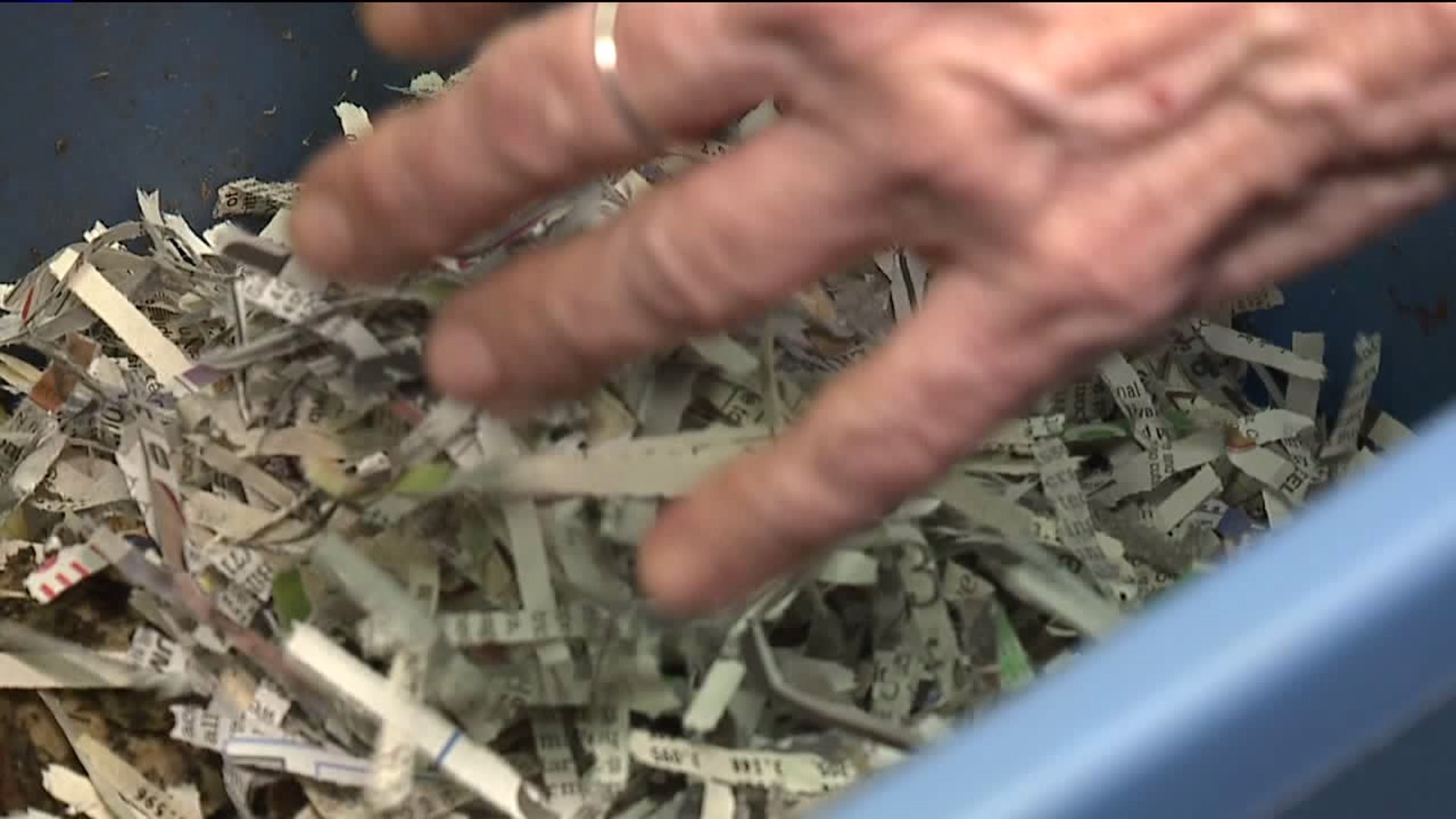SCRANTON, Pa. -- Most of us think about recycling our cans and bottles but how many of us think about recycling our food?
"Believe it or not, half of what is in a landfill, 50 percent, is paper and food. So on an individual level, a person can feel like, 'I'm doing my part. Yes, I'm recycling and I'm recycling my food," said Barbara Giovagnoli, Lackawanna County Recycling Coordinator.
Enter, vermicomposting which uses worms, specifically red wigglers to turn organic waste into a high-quality compost.
"Vermicompost is excellent to add to the soil, and boy, do those plants take off," Giovagnoli said.
To make your own vermicompost, start with a plastic storage bin and drill some holes in the sides and top to allow air to get in for your worms. Then, add in a 6-inch layer of moistened and shredded newspaper. Next, add in some food for your worms.
"We'll put a few crumbs in," Giovagnoli said. "They're easy for them to get right away".
You can also add in things like coffee grounds, napkins, and paper towels so long as there isn't any grease or oil on the paper goods. Then, add in your worms, and cover everything up with additional moistened and shredded newspaper.
"That, I would say, is one of the most important tips on food composting. Be it inside or outside, cover the food. Always make sure the food is covered."
Close your lid, and you're done.
To learn more about vermicomposting, you can check out the Earth Day event happening in The Marketplace at Steamtown from 10 a.m. until 4 p.m. on Saturday, April 21.

